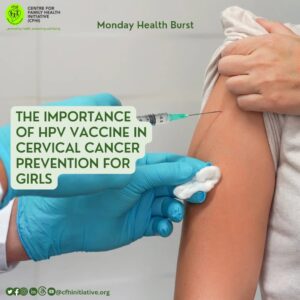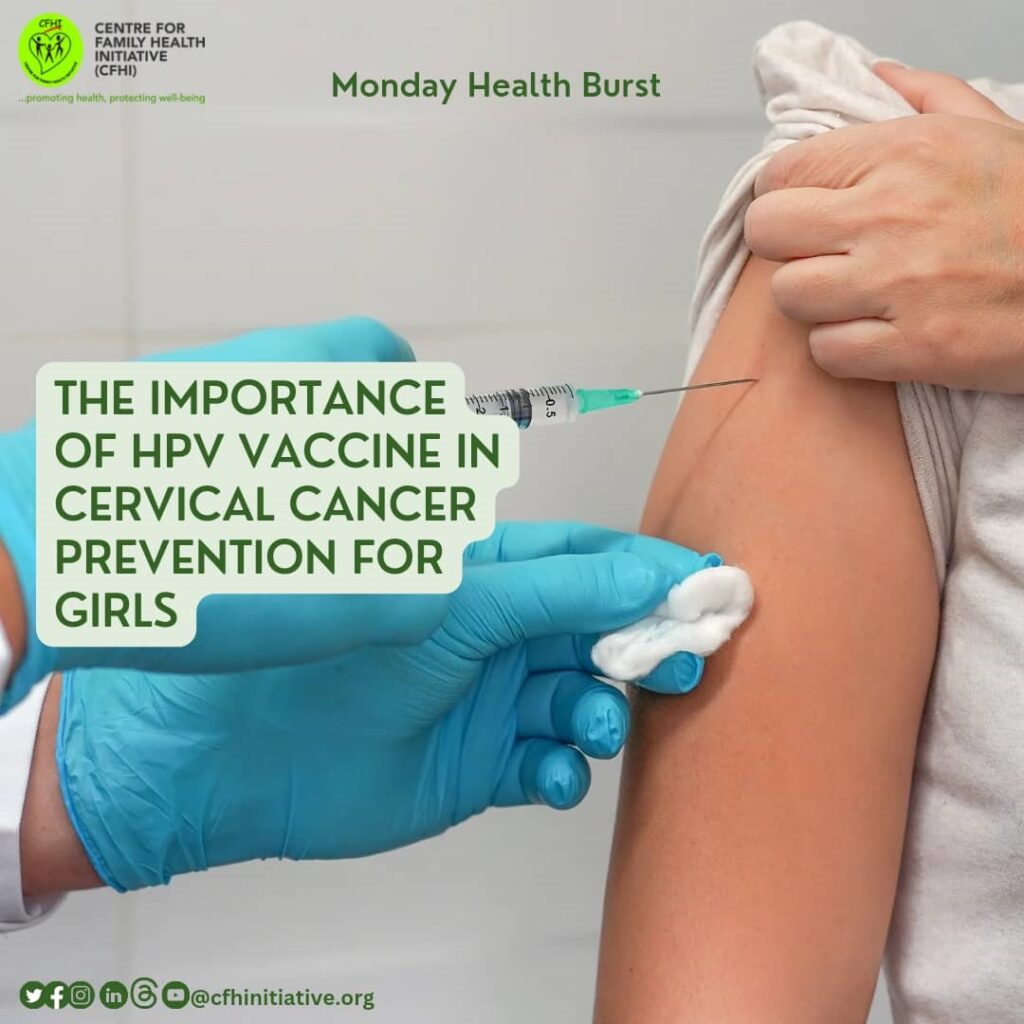Cervical cancer is one of the leading causes of cancer-related deaths among women globally, with the Human Papillomavirus (HPV) being the primary cause. Fortunately, advances in medical science have made cervical cancer largely preventable through the HPV vaccine. This vaccine plays a critical role in safeguarding girls’ health by preventing HPV infections, which can lead to cervical cancer and other related diseases.
HPV is a common virus, with more than 100 strains, out of which certain high-risk types like HPV-16 and HPV-18 are responsible for approximately 70% of cervical cancer cases. The virus is transmitted through skin-to-skin contact, primarily during sexual activity. Most HPV infections resolve on their own, but persistent infections with high-risk strains can cause abnormal changes in the cells of the cervix, eventually leading to cervical cancer.
Benefits of the HPV Vaccine for Girls
Preventing Cervical Cancer: The primary benefit of the HPV vaccine is its ability to prevent cervical cancer. By protecting against the high-risk HPV strains, the vaccine dramatically reduces the incidence of precancerous cervical lesions and, over time, cervical cancer itself. Countries that have achieved high vaccination coverage have observed declines of 73–85% in vaccine-type HPV prevalence, and declines of 41–57% in high grade lesions (cervical intraepithelial neoplasia, grade 2 or worse) among young women, less than 10 years after implementation of HPV vaccination.1
Protection Against Other Cancers: In addition to cervical cancer, the HPV vaccine also provides protection against other cancers caused by HPV, including cancers of the vagina, vulva, and oropharynx (throat). This broad protection further underscores the importance of the vaccine in promoting long-term health for girls.
Reducing Healthcare Burden: By preventing cervical cancer, the HPV vaccine helps to reduce the overall healthcare burden. Fewer cases of cervical cancer mean fewer medical treatments, surgeries, and long-term care needs, benefiting both individual families and healthcare systems.
For the HPV vaccine to have its full impact, it is essential to ensure that all girls have access to it, regardless of their socioeconomic status or location.
Many low- and middle-income countries face challenges in providing widespread access to the vaccine, but initiatives by governments, global health organizations, and non-governmental organizations (NGOs) are working to close this gap.
In 2023, CFHI took part in a training for Civil Society Organizations focused on integrating the Human Papillomavirus (HPV) vaccine into Nigeria’s Expanded Program on Immunization (EPI) schedule. After the training, CFHI with support from the National Primary Health Care Development Agency (NPHCDA) led several weeks of intensive community dialogue, training of community workers, sensitization, and referral efforts to promote HPV vaccine uptake in the Kuduru Community, Abuja. These efforts reached around 4,000 individuals, resulting in the successful mobilization of 2,300 girls for HPV vaccination in the Kurudu ward.
The HPV vaccine is a powerful tool in the fight against cervical cancer, offering girls protection against the virus that causes most cervical cancer cases. By getting vaccinated early, girls can significantly reduce their risk of developing cervical cancer, as well as other HPV-related cancers. With widespread adoption of the vaccine, we can move closer to a future where cervical cancer is a preventable disease, ensuring that girls grow up healthy, empowered, and free from the threat of this life-threatening condition.
It is vital for families, communities, and healthcare providers to work together in promoting HPV vaccination and addressing any misconceptions. Visit the nearest healthcare facility or reach out to the National Primary Health Care Development Agency for more details on HPV vaccination.
Reference:




